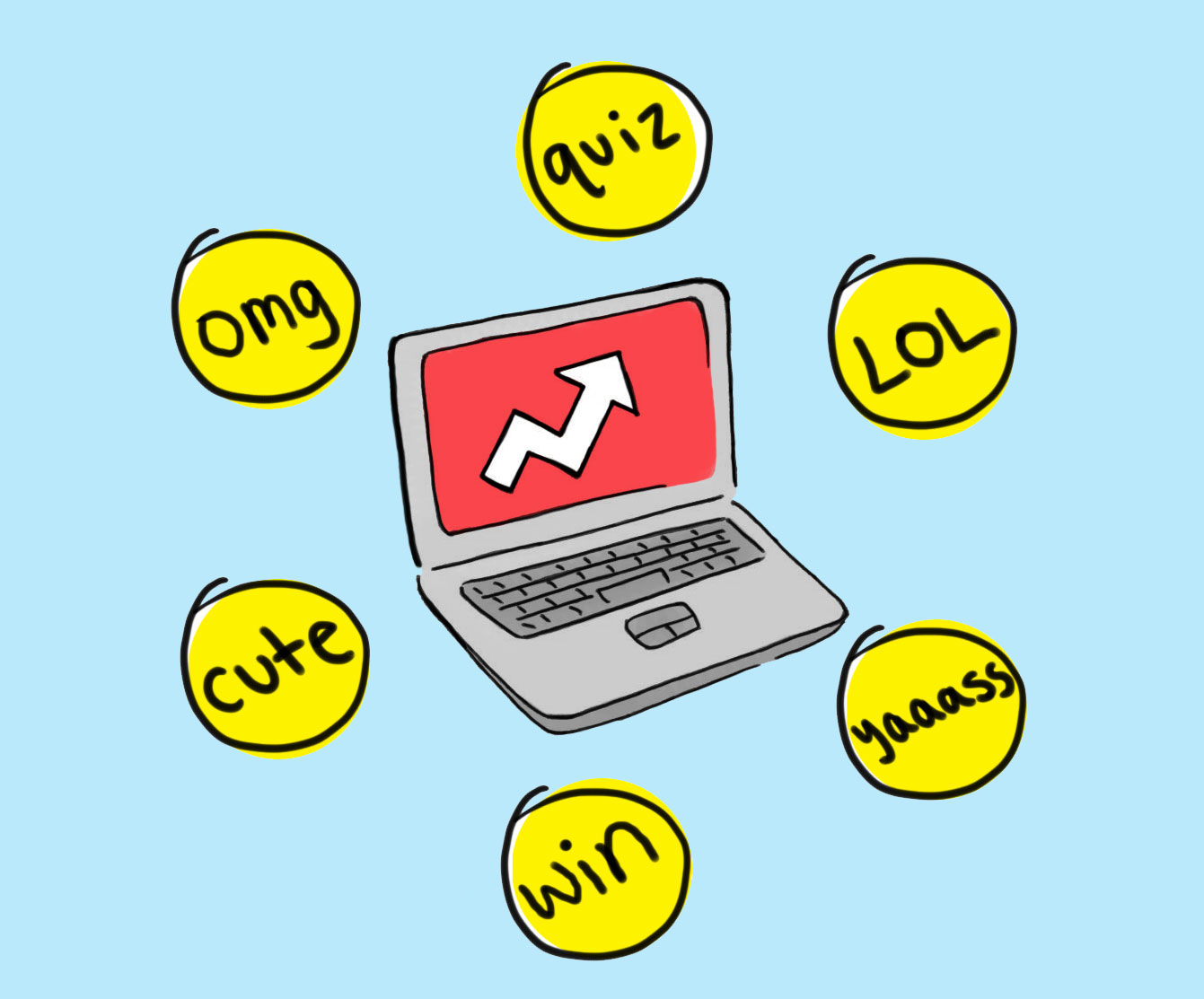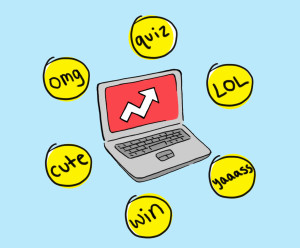
The iconic yellow buttons “LOL,” “fail,” “win” and “trashy” sit atop of Buzzfeed’s lists of smoothie recipes, celebrity scandals and cat videos. Next to the “15 Texts Your Dog Would Totally Send You While You’re At Work,” the article “Eighty Years of Fergusons” analyzes civil rights and compares Michael Brown’s case to the past.

Buzzfeed’s article format, consisting of mostly pictures accompanied by captions, speaks to its entertainment goal. “If I wanted to be cheered up, like by some cute videos, then I would go on Buzzfeed,” says sophomore Meghana Gadiraju. “Buzzfeed has information about movies, TV shows and books that you wouldn’t find by going on Wikipedia or [Google].”
However, despite displaying what some see as unserious content, Buzzfeed has made concerted efforts to expand the scope of its content. In 2011, the company hired Ben Smith, a prominent writer at Politico, a political news organization, as editor in chief. In addition, the site controls a twitter account under the name “BuzzfeedNews.” Recent tweets include links to articles about athlete Michael Sam and terrorist organization Boko Haram.
Although Buzzfeed dedicates a section of its site to news, students say entertainment content remains at the forefront of its influence. “At the moment, Buzzfeed is centered around inconsequential topics, like ‘Which are the most popular Disney movies?’” says senior Oma Skyrus.
Sophomore Regan Castillo adds, “The most popular posts of Buzzfeed are random topics that are not relevant to any news.”
Currently, the most popular Buzzfeed article is “21 Pictures That Will Restore Your Faith in Humanity,” sitting at over 15 million views.
Buzzfeed hopes to use its journalism coverage as another method of gaining popularity and ad revenue. The site has become associated with its notorious use of “native advertising,” a system of ad placement meant to entice clicks through alluring hooks and potentially deceptive statements. Through such tactics, it attracts over 150 million average viewers monthly and is set to earn roughly $140 million this year. However, because a majority of its content depends on clickbait, many users have reservations regarding Buzzfeed’s credibility.
Sophomore Catherine Yeh says, “I don’t think Buzzfeed’s info is believable, but it is funny. I feel that much of Buzzfeed’s content could be grabbed off the internet. Their claims are unfounded and don’t have many sources.”
The plethora of entertaining lists and quizzes also raises questions of its credibility, especially in its journalistic endeavors.
“Buzzfeed is not the most reliable news source; its colloquial language and funny videos would not help them,” says Gadiraju. “I would go on Buzzfeed for fun and not for news.”
In July, Buzzfeed apologized for its ex-writer Benny Johnson who was caught plagiarizing 40 posts. Although Johnson has been fired from the team, Buzzfeed’s reputation was put into question.
Nevertheless, Buzzfeed recently teamed with Radiolab to create “60 Words,” a podcast which analyzed the effects of a 60-word legal justification for the post-9/11 war on terror. Such collaborations serve as evidence of Buzzfeed’s growing status as a journalism source.
Skyrus remains wary of Buzzfeed’s intentions. “Buzzfeed should use their influence on the youth to help them become more aware of the world around them,” she says. “Buzzfeed’s interests aren’t about spreading news, but about making money.”
“Buzzfeed needs to talk about events that occur worldwide, not be focused on trends,” she says. “Buzzfeed won’t be taken seriously until they do so.”




